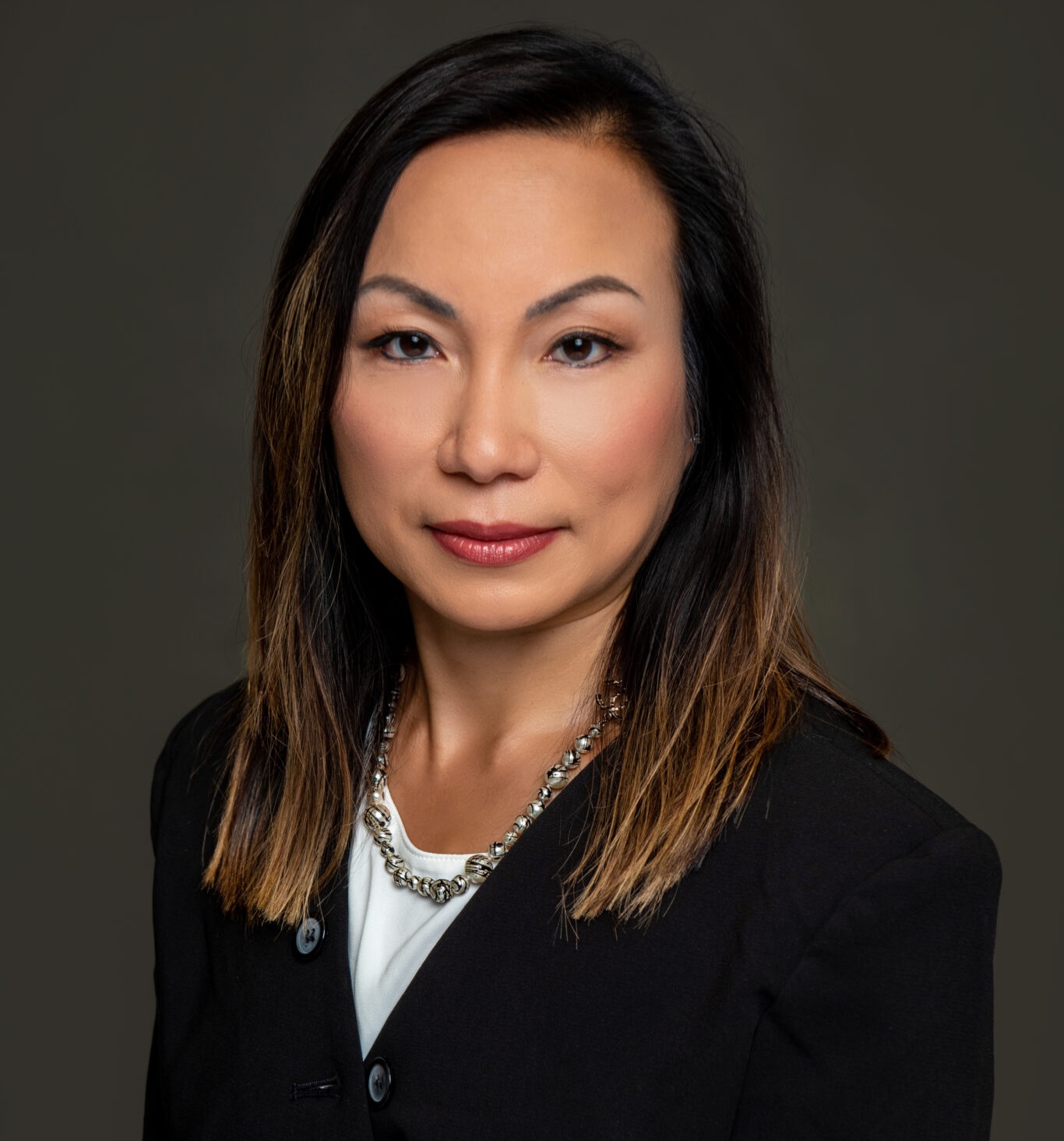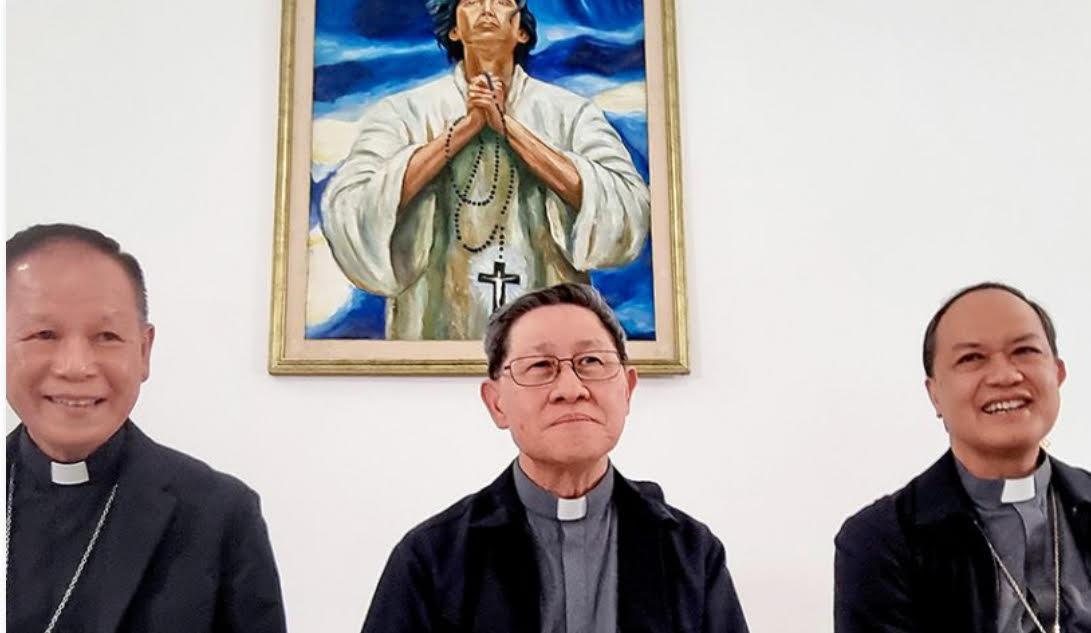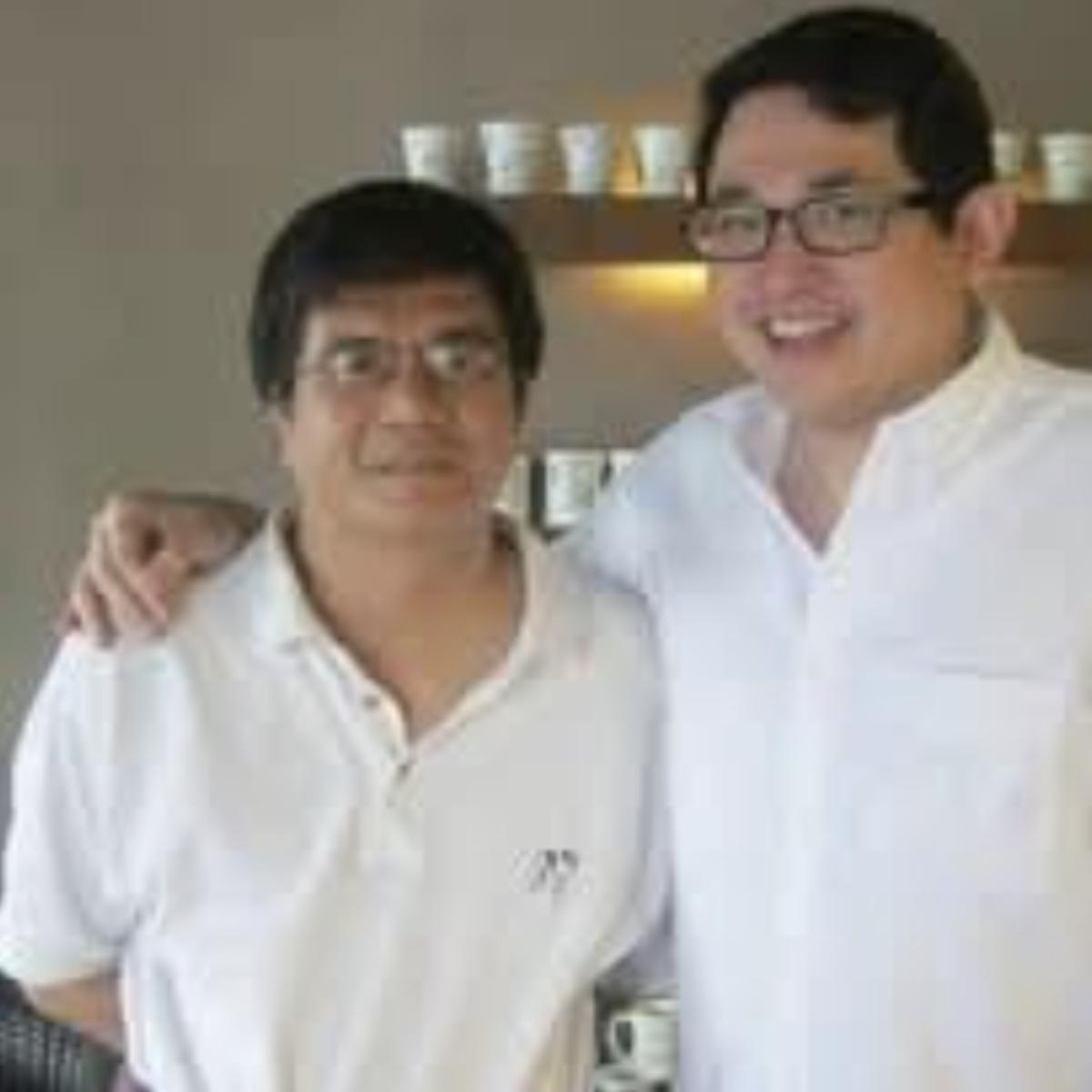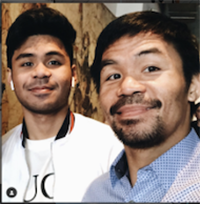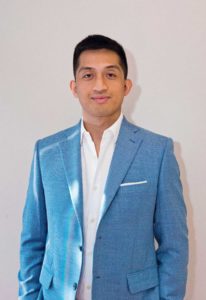
Coming from such a prominent Filipino family — with grandparents Ferdinand and Imelda, mother Imee as Ilocos Norte governor, and uncle Ferdinand “Bongbong” Marcos Jr. who was a senator and ran in 2016 for the vice presidency, the results of which are currently under an electoral protest — you could say a political career is somewhat inescapable for younger members of the Marcos clan, like Matthew Marcos Manotoc.
The 29-year-old, third-generation Marcos entered the political arena in 2016 when he ran for senior board member of Ilocos Norte’s 2nd District, which covers Batac City and the municipalities of Badoc, Dingras, Paoay, San Nicolas, Banna, Solsona, Nueva Era, Pinili, Currimao, and Marcos.
He continues to be an agent for Filipino basketball players under his company, Espiritu Manotoc Basketball Management. Sports, which he considers a life-long passion, have guided his political platform of health and wellness, youth development and entrepreneurship.
Manotoc was recently in Los Angeles for a week-long trip to meet with local loyalist groups, such as Bongbong Marcos (BBM United) and Governor Imee Marcos for Senator, and the Ilocano disapora.
In an exclusive interview, the Asian Journal spoke to Manotoc about his rise to politics, the future of Philippine basketball, and of course, how it’s been carrying the Marcos name.
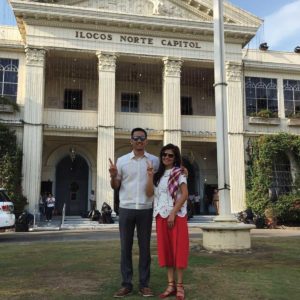
Asian Journal (AJ): How has the reception been from the people you’ve met during your trip to LA?
Matthew Manotoc (MM): It’s very heartwarming. A lot of them are obviously nostalgic. It comes from our region, they call it the “Solid North” for a reason. They’re fiercely loyal and sometimes I’m not sure exactly why. But we really appreciate it and that’s the main point I wanted to make when I spoke to [these groups]. Even for me, I never necessarily saw myself entering politics but the loyalty they’ve shown us over the years is really overwhelming and inspiring. It’s one of the reasons why my family and I continue to serve.
AJ: In your conversations with these groups in LA, what have they been sharing or what issues have they’ve been raising?
MM: A lot of people obviously want to know what’s the latest with my uncle Bong’s protest or appeal in addition to my mother’s campaign — is it final? What is she running for? I think, more than anything, it’s been so much warmth, appreciation, and complimenting my family, which is a little weird at times honestly. I get it a lot even in Manila because I think the people who like us will talk to us and the people who don’t like us probably won’t talk to us. So the things I hear tend to be positive of course. But obviously, I know there’s another side to it and I try not to get too carried away with all of the positive comments.
AJ: Years later, your grandfather’s presidency continues to be a divisive topic among Filipinos. How do you deal with the critics?
MM: I get that they are totally entitled to their own opinion. In addition, there is another side to the story or for most maybe that is the story. There are multiple sides or faces to what happened. I think more than anything, for me, like I’ve accepted it. It’s very personal to me because of my family, my grandfather but I didn’t live through it. I understand why my uncle, my mom, and even my aunt — the direct children — it’s hard for them to really admit certain things, that there were mistakes or errors.
Like my uncle Bong for example. It took him a while. Initially he was saying, ‘No, I won’t apologize.’ Then he softened his stance to eventually come around to saying, ‘of course there were mistakes and if people are offended by that, then I’m sorry.’ He kind of apologized but of course it didn’t make everyone happy. But I think what people underestimate is how sentimental or emotional it is for them. That was their father, that really was their hero. He was everything to them so it’s not easy to criticize your own hero or your own father.
For me, I’ve heard multiple sides of it so I wouldn’t criticize him but I’ll readily admit that he wasn’t perfect and that there were mistakes that he committed. There are many theories as to why things ended the way they did.
AJ: As you continue your political career, you’ll inevitably always be tied to your family but how are you making a name for yourself?
MM: Personally, it’s nice to be in local politics where I really have…an impact on actual people that I can see. As a senior board member of the province, we’re on the legislative side and we draft ordinances and resolutions so I’ve been able to pass certain ordinances over the past two years.
I think [what] perhaps separates me is sports, for example, which I’m very passionate about. My platform when I ran was health and wellness through sports and the youth, because I am young. Also entrepreneurship because I’ve started my own basketball agency. That’s what I push — the sports and the youth factors are maybe what distinguish me from my family, even though my mom has been very supportive of the youth since she was a founding member of Kabataang Barangay back in the day. She’s always recognized and supported the youth sector.
AJ: What are some of the accomplishments in the past two years as senior board member of the Ilocos Norte province that you can share?
MM: I wouldn’t necessarily say in the past two years but maybe in the five or 10 or since my mom has been in power: the poverty has gone down, the infrastructure has improved, commerce has grown. Generally, if you go to Ilocos, people are quite impressed. We’re always blessed with a very diligent population — Ilocanos are known to be kind of stubborn, thrifty, and hardworking. We benefit from that. If you look at San Nicolas, we have call centers that have entered in the last few years. Robinsons [Place] in San Nicolas has expanded almost three-fold. Manufacturing has diversified so our province has definitely grown. The province is at a pretty good place but obviously there’s a lot of development that can still happen.
AJ: What should the province focus on in the next five to 10 years?
MM: Hopefully bring more business in, that’s key for Ilocos. Currently, I’m reviewing the investment code. I really want to make sure that incentivizes businesses. It’s tough, though. In the past two years, one of the most important things I’ve learned is that most of the laws and ordinances exist but it’s just a matter of practicing and implementation. I think that’s where we often fall short…That’s where the bureaucracy and the systems and the enforcement are really lacking.
Manufacturing is something we really need to focus on — industrializing. Having an industry of our own wherein we create certain products even. We have that on a small scale. We can still do a lot with tourism. We’re kind of an under-the-radar destination. When people think of Ilocos, they think of Vigan first because it’s a World Heritage Site…but it’s not in our province. We have the sand dunes, we have forests, the beach, a huge lake. You get a lot of environmental attractions so I’m hoping we can step up our tourism in terms of operationalizing certain sites, developing more around [them], and accessibility. It’s tough because sometimes a new waterfall will be discovered, for example, and it’s not really managed, you have one guy there overseeing things but it takes a lot of coordination from the barangay to the municipality to the government…It’s not easy to do all the time.
AJ: You studied in the U.S. for college, what was it like going and taking that perspective back home to the Philippines?
MM: Honestly, sometimes I wish I were a lot more Ilocano in a sense or even more Filipino because I spent about eight years in the Philippines but I went to an international school and I went to Ateneo for about a year. Sometimes I struggle even with myself because there are certain elements of myself that I think are Filipino and there are certain elements…that are more international, which a part of that could be American because I Iived here for almost 4 1/2 years. Those are certain things you don’t agree with people on and I think that’s the upbringing here and certain cultural differences. But now that I’m spending more time in the Philippines, I also see it from their perspective. It gives you a broader, multicultural perspective which I think helps. But what I like to work on is being on the ground, getting that grassroots experience. It’ll take time, which I’m willing to invest in.
I wouldn’t say it was a big adjustment but sometimes there are certain issues and you see them both ways, you’re even torn yourself. You have a Filipino perspective and an American perspective and you see them clashing. If anything, it gives you more to contemplate and evaluate in your head because you have more factors. Perhaps that’s a result of being more open-minded. It’s obviously a benefit, but as I said, I do think I’m not Filipino enough so that’s something especially as a public official now that I have to work on.
AJ: To you, what does it mean to be a Filipino and that identity?
MM: It’s hard to define because I think the ‘Filipino’ is evolving, especially with so much international movement…[and] because we’re very multifaceted and eclectic ourselves. It would be hard to pinpoint what is a Filipino, but I think the culture is what is unique to us, our hospitality that everybody talks about, the warmth that you receive from a Filipino wherever you are. The biggest thing is really the strong culture that we have that many people are working to sustain despite all the changes going on.
AJ: With the international perceptions of the Philippines, as someone who is living in the country, what do you want people to know about what’s really happening there?
MM: I suspect the way things are reported here tend to be negative. Duterte still enjoys quite a high popularity level…It has eroded a little bit, which I think is a result of 1) the drug war, which some people think that he’s overdoing and 2) recently, the TRAIN [Tax Reform for Acceleration and Inclusion Act] laws that passed have taken a big impact. It’s also heightened inflation and that’s what people are struggling with. A lot of people are questioning — they understand that the [government] wants to raise money for the Build, Build, Build program but it shouldn’t hurt the poorest and the masses who are struggling day to day. But ultimately, these are growing pains. I really applaud the president for his vision and his independence. He is a very strong leader who has a ton of conviction and is a principled man.
Infrastructure, for example, is something that we need so one way or another we have to find a way to finance that. Hopefully…we find ways to limit the difficulties people are experiencing now with the higher inflation. The other day when I left [the Philippines] growth slowed down too from the 7-8 percent they wanted to 6 percent so I think the rise in inflation had an effect on that too. I don’t think they can adjust the TRAIN since it’s been passed so let’s see how things move forward. Now with Gloria Macapagal Arroyo also back in the picture, her being an economist, it seems that Duterte’s team is quite amenable to her and her people’s input so hopefully they can come together and control the economy because that’s crucial.
AJ: Shifting gears to your work in sports and your agency, how have you been recruiting more basketball players in the Philippines?
MM: Our agency is called Espiritu Manotoc Basketball Management (EMBM) that we started in 2011. We manage PBA players and have about 20 players right now. The biggest names are probably Japeth Aguilar and Matthew Wright. We also help out collegiate players so we want to open doors for Filipino Americans to see what basketball is like in the Philippines and how much it has to offer and potentially play in the PBA. We want to help Philippine basketball in general. In addition, we try to assist with basketball development on the grassroots [level]. We also do a lot of sports marketing and for corporate brands who want more of a basketball slant. It’s something I’ve always been passionate about, being someone who has played basketball and continues to do so.
AJ: What is the future of basketball in the Philippines?
MM: I think we’ll always be good. But now, what it’ll take for us to be a great, it depends on how we define great. Well, that’s not true because Australia is now part of our crew. We’re probably top three to five in Asia. FIBA [the International Basketball Federation] — it’s a weird rearrangement — changed the groupings so Australia is now part of the Asiatic region, which personally is really unfair. We can’t compete against Caucasians so it’s really tough. See, that would be our limitation in the future of Philippine basketball is that we’re just physically inferior, but in terms of skill, our skill is second to none. Even our ability is really high and the basketball culture is so strong so we’re always going to produce great talents and terrific players.
The question is if we can form a strong national team wherein they play together and play team ball. Nowadays, kids growing up are victims of social media and YouTube and they just see highlights so it kind of encourages them to be individualistic which runs counter to the right way to play basketball, which is team oriented. That’s something I would want us to move towards…because that’s what succeeds.
AJ: What’s next for you political wise?
MM: I don’t know. It’s something people have been asking me. It’s too early to say so I wouldn’t want to commit to anything. I’ll definitely be running again next year but I don’t know in what capacity. I’m looking forward to continuing to serve the Ilocano people. We’ll see what the cards have in store for me.
AJ: What’s some advice your family has given you as you build your career?
MM: I don’t think there’s one word of advice in particular. They’ve always strived and…whatever you do, try to be the best at it. There’s that certain track record which they have and really practice. They’ve been very lenient in a sense where they’ve let us essentially do what we like. But there’s also that expectation that whatever you do, you have to do it well and do it right. It’s not necessarily something they’ve preached but over time, it’s something you absorb and internalize and try to practice yourself.
AJ: Seeing your mom and other women as top leaders in the Philippines, what can people learn from them?
MM: [Female leadership] has come a long way. Most Filipinos, I don’t think, don’t have any problem with female leadership. With (Cory) Aquino, GMA, we have had and currently have a lot of female leaders. Given there are still some traditionalists who perhaps would rather not have female leaders, I think especially the younger generation is supportive of female leaders. Honestly and I’ve read some about the subject, there is so much that male leaders can learn from female leaders, like being more compassionate, collaborative, which sometimes our machismo and masculinity kind of get in the way of. I’m glad to see Filipinos be more amenable to female leaders and…that goes hand in hand with the LGBT issues.
We’re slowly chipping away from the older mindset and it’s great to see. I think that’s going to grow wherein we’re only going to become more open-minded especially with social media and everyone has a voice. People are starting to appreciate varying voices nowadays more than ever perhaps.
This interview has been edited and condensed for clarity.



